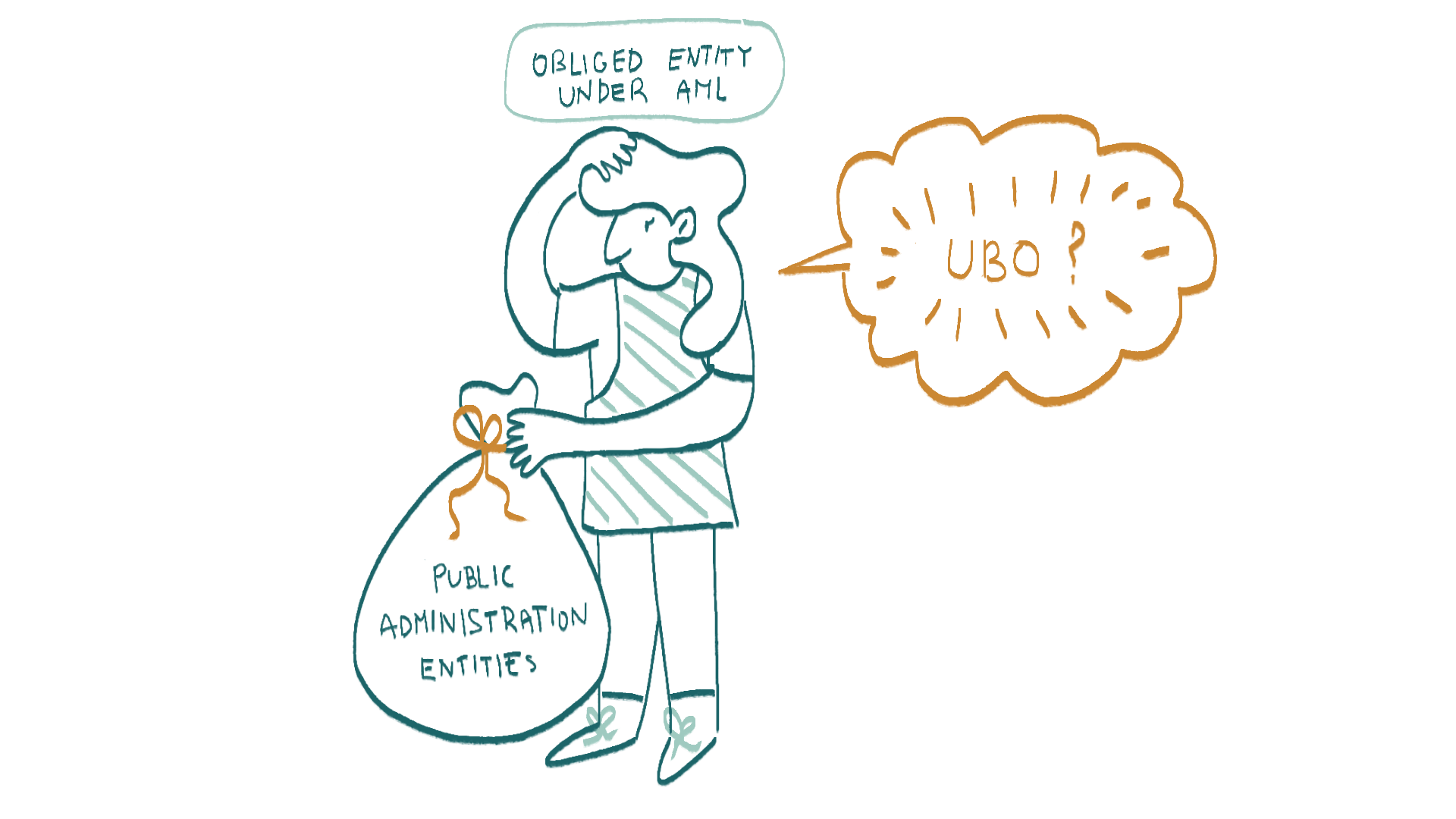Brook replies

How should an obliged entity verify the identity of a represented legal entity under the AML Act?
As a financial institution, we are obliged to identify clients and verify their identity in accordance with the AML Act. Before the latest amendment to the AML Act came into effect, when verifying the identity of corporate clients other than the statutory officers (such as CFOs, COOs, etc.) we accepted powers of attorney, delegations, or mandates even without officially certified signatures of the statutory officers. Section 8(1)(c) of the AML Act stated that verification of identity means the verification of data obtained from a presented power of…

Does the obligation to verify Ultimate Beneficial Owners under the Slovak AML law also apply to public administration entities?
We are an obliged entity under the Slovak Act No. 297/2008 Coll. on protection against money laundering and terrorist financing (AML Act). Many of our clients are entities funded from the state budget, established by law, or otherwise part of public administration. For such entities, we typically perform simplified due diligence in accordance with Section 11 of the AML Act. However, even for these clients, we identify and verify the ultimate beneficial owners (UBOs). Since in most of the cases of these…

Can the place of work performance be regulated by an internal regulation?
One of our employees has an employment contract specifying that her place of work performance is at our two facilities. However, we now want her to work from only one of these facilities and we want to prevent her from freely choosing which of the two facilities she works from. We have informed the employee that it is no longer possible for her to work from the second facility and have requested that, from a certain date, she only works from the address of the first facility. The employee is objecting, claiming that this is a change to her employment contract, which can only be done by a written amendment.

If a husband co-signs a statement of guarantee with his wife, does he guarantee a debt with his separate property, which is not part of the community property?
My wife is an entrepreneur, and she holds multiple shares in various companies. Since she owned these shares before our marriage, I assume they are not part of our joint ownership of spouses (similar to community property under common law and referred to as BSM in Slovak law). Only the income generated from these shares during our marriage, such as dividends, might be considered part of our joint ownership of spouses. One of my wife’s…

Is it possible to transfer employees from one company to another without transferring any other assets?
Our company provides services in a very specific area of information technology combined with financial services. At present, there is a shortage of qualified workforce in this field in the labour market. We are negotiating the provision of such services with a large company, which is currently receiving these services from another company. This other company currently employs most of the qualified staff for this specific area available in the labour market. However, the current service provider is ceasing…

What is the period for a securities trader to handle customer complaints?
We are a securities trader operating in Slovakia under the Single European Passport. We aim to standardise our complaint handling policy to be consistent across all our branches operating within the European Union. Does the requirement that a customer’s complaint against the conduct of a securities trader must be resolved within 30 days of receipt apply in Slovakia as well? Is it possible to extend this complaint handling period? If so, in what cases and to what extent? Do we need the customer’s consent to extend the complaint handling period? And can…

What is the proper way to consult employee termination notice with trade unions?
There is a trade union in our company. Recently, the organisation of our work has changed significantly, and a large portion of our employees and managers, including trade union representatives, work remotely. Most of our meetings take place online through Zoom or MS Teams. We would also like to hold meetings with trade union representatives this way. Our question is whether we can consult termination notices in accordance with Section 74 of the Slovak Labor Code online. We also want to know if we are obliged to present the actual text of the termination notice to the trade…

Are the Conditions for Providing Czech Long-term Investment Product and Slovak Long-term Investment Savings the Same?
We are an international investment company with a branch in Slovakia authorized to provide certain investment services. We have a similar branch in the Czech Republic where we offer the so called “long-term investment product (DIP)” to our clients. We plan to introduce a similar version of this product in Slovakia. We know that Slovakia has also implemented a tax-advantaged long-term investment savings (DIS) plan. We assume that since we can offer DIP in the Czech Republic, we can offer DIS in Slovakia under…

Can an employee’s salary be paid into a bank account held in a foreign bank?
An employee asked us to send his salary to a bank account held in a Czech bank. While this is an account in euros, it is not an account held by a Slovak bank or a Slovak branch of a foreign bank. We responded to the employee that although we would like to accommodate his request, we cannot comply as it contradicts the provision of section 130 subsection 8 of the Labor Code. This provision explicitly states that an employer is obliged to transfer wages to an account specified by the employee in a bank or a branch of a foreign bank in Slovakia. The employee claims that our view is incorrect…

